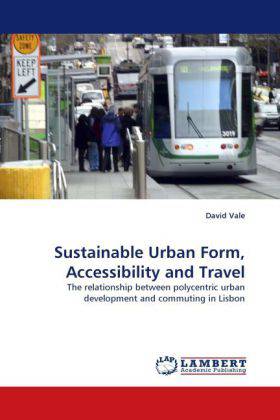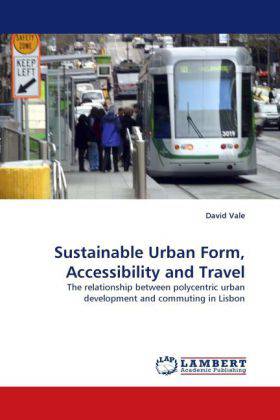
- Afhalen na 1 uur in een winkel met voorraad
- Gratis thuislevering in België vanaf € 30
- Ruim aanbod met 7 miljoen producten
- Afhalen na 1 uur in een winkel met voorraad
- Gratis thuislevering in België vanaf € 30
- Ruim aanbod met 7 miljoen producten
Zoeken
Sustainable Urban Form, Accessibility and Travel
The relationship between polycentric urban development and commuting in Lisbon
David Vale
Paperback | Engels
€ 77,95
+ 155 punten
Omschrijving
Cities around the world are implementing sustainable urban form policies to alter mobility patterns. In this book, we reframe these policies as 'multimodal accessible city' policies, emphasising accessibility as an important additional explanatory variable of travel behaviour. We focus our research on polycentric urban development policy, which can be seen as a feasible sustainable urban form policy to large cities and metropolitan areas. We found car commuting and public transport commuting to be phenomena explained by different variables, in which car commuting is mainly a socio-economic driven phenomenon, while public transport commuting is mainly a land-use driven phenomenon. However, the analysis of commuting impacts resulting from the relocation of workers and residents points to a negligible commuting impact on residents, who are mainly car commuters, but a negative impact on the commuting patterns of workers, whose car usage has significantly increased as a result of the workplace relocation. Therefore, we argue that polycentric urban development is an important urban policy, but not sufficient, to achieve the desired sustainable commuting patterns.
Specificaties
Betrokkenen
- Auteur(s):
- Uitgeverij:
Inhoud
- Aantal bladzijden:
- 264
- Taal:
- Engels
Eigenschappen
- Productcode (EAN):
- 9783838320199
- Verschijningsdatum:
- 6/06/2010
- Uitvoering:
- Paperback
- Formaat:
- Trade paperback (VS)
- Afmetingen:
- 152 mm x 229 mm
- Gewicht:
- 390 g

Alleen bij Standaard Boekhandel
+ 155 punten op je klantenkaart van Standaard Boekhandel
Beoordelingen
We publiceren alleen reviews die voldoen aan de voorwaarden voor reviews. Bekijk onze voorwaarden voor reviews.











